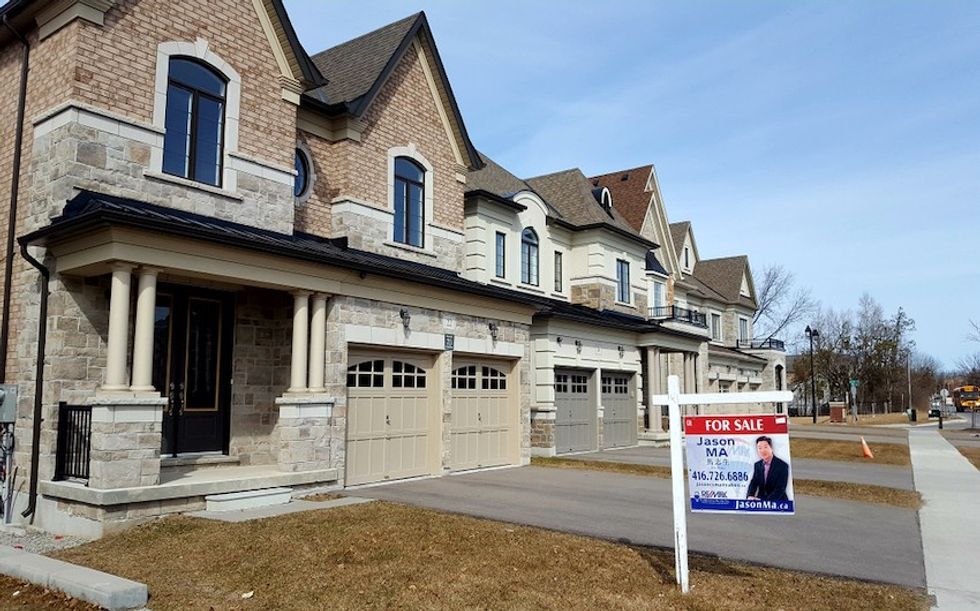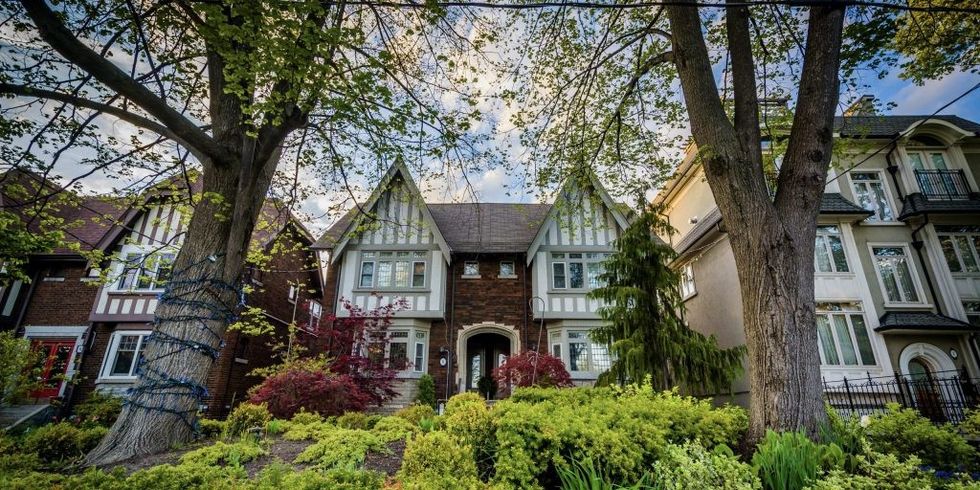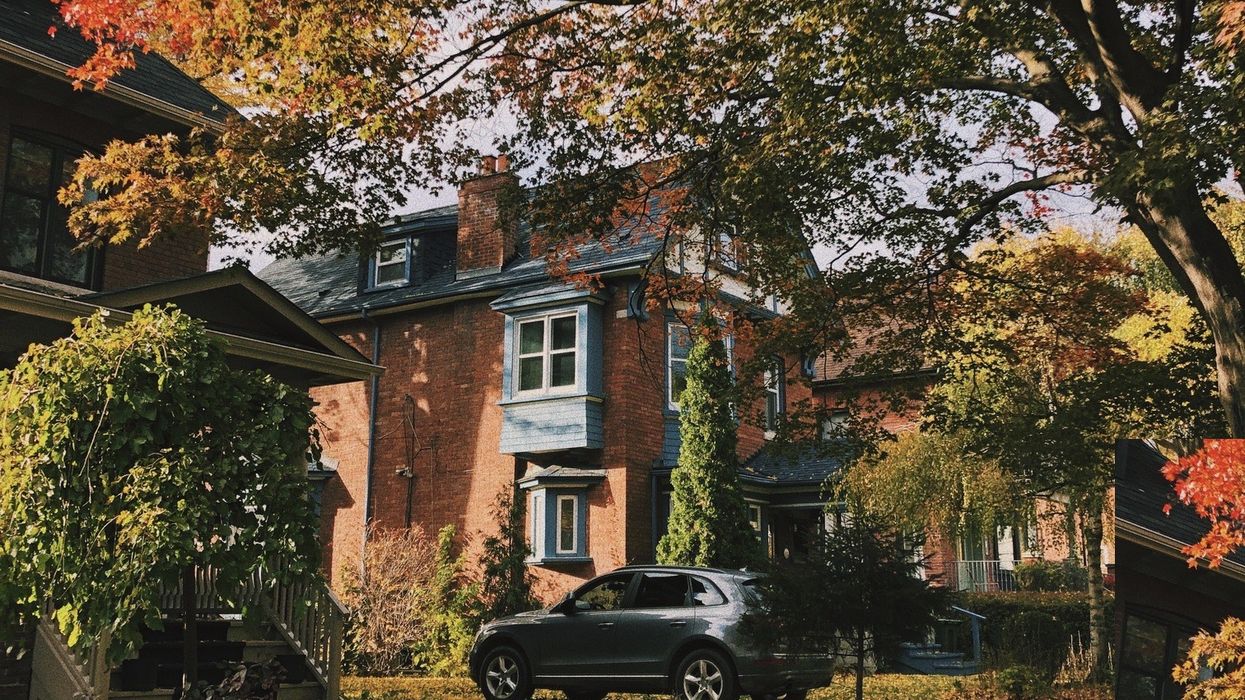It’s been a wild ride for the single-family home real estate market in the Greater Toronto Area (GTA) in the year since “social distancing” became a common term in our collective vocabularies.
While the relentless COVID-19 pandemic ravished some industries, it seemed to offer a catalyst for a red-hot, incredibly competitive real estate market for single-family GTA homes, as the need for more space became glaringly apparent.
We’ve gone from a virtual shutdown on the real estate front – accompanied by doom and gloom predictions and subsequent headlines – at the onset of COVID, to smashing records in terms of both sales and transactions one year later.
RELATED: One COVID-Year Later: Everything That’s Happened in Toronto’s Condo Sector
How did it all happen? Let's reflect...
Winter 2019-20: Pre-COVID Predictions
As we kissed 2019 goodbye, nobody could have guessed how vastly different life (not to mention, the real estate market) would become in a matter of months. At the time, real estate experts predicted a modest market with stable growth. Early in the year, January saw the highest monthly price gain in two years (8.7 per cent year-over-year), leading the Toronto Regional Real Estate Board (TRREB) to declare that the hot GTA market would be a trend that would stick around. Supporting this, February 2020 resulted in the highest number of new home sales in nearly two decades and an overall rise in sales activity of 45 per cent year-over-year.
Spring 2020: Adapt and Rebound
At the onset of COVID-19 and its control measures, GTA real estate pretty much ground to a halt in the chaos and confusion, resulting in record-low transactions. In April, Toronto’s home sales dropped nearly 70 per cent year-over-year, and the city’s average selling price hit a mark of $881,424, a 2.5 per cent drop year-over-year. A report from Local Logic revealed a 35 per cent decrease in online users reaching out to agents in just one month, between March and April. At the same time, the real estate industry sprung into action to adapt, with new innovative offerings including virtual open houses. And these virtual open houses took off: Canadian real estate portals reported an increase of between 200-500 per cent in requests for virtual home tours as the pandemic took hold.
Despite this flurry of online activity, by mid-May, the Canadian Mortgage Housing Corporation (CMHC) released their now infamous predictions that the average housing prices could drop up to 18 per cent over the coming 12 months thanks to the large amount of mortgage deferrals occurring at the time. At this point, chatter began to emerge surrounding a much-feared mortgage deferral cliff (which would end up becoming more of a myth than a reality). Around the same time, RBC suggested the possibility of a 30 per cent drop in home prices in 2020. Nobody could have predicted the mayhem that would follow, once real estate agents’ phones began to ring off the hook.

Summer 2020: The Red-Hot Market Sizzles
Facilitated by a newfound need for more space to live and work – and, likely, more time to reflect and assess – the GTA real estate market shot to life again once the warm weather hit in June. At least, for those in search of single-family homes it did (tiny condos, not so much).
And it’s been red-hot and record-breaking ever since. Indeed, in the months that followed, July to November saw a double-digit year-over-year increase in home sales. A TRREB housing report revealed sales on a year-over-year basis were up a staggering 40.3 per cent annually in August in the GTA regions.
By September, this figure had climbed to 42.3 per cent.
End-of-Year High Note
There was no slowing down come December, traditionally one of the slower times in real estate. In December 2020, we saw a record 7,180 sales – a year-over-year increase of 64.5 per cent.
Led by single-family homes, 2020 was a headline-making year of smashed records for GTA home prices and number of transactions across the board. The average 2020 selling price reached a new record high of $929,699, up 13.5 per cent from 2019’s $819,279, according to TRREB. This difference is attributed to single-family homes.
Luxury home sales reached an all-time record in Toronto in 2020, with the sale of homes higher than $3-million topping peak 2017 levels, according to RE/MAX of Ontario-Atlantic Canada. The Canadian housing market was already on pace to have another record year in 2021, according to RBC economist Robert Hogue, as we closed out 2020 “full of bidding wars, escalating prices, and exasperated buyers unable to find a home they can afford.”

Winter 2021: New Year, Same Flurry
The record-breaking didn’t stop in 2020. The sales of single-family homes reached a 15-year record in January, when over 1,500 were sold, according to the Building Industry and Land Development Association (BILD). Then, in February, a record number of home sales were recorded and the average price of a GTA home had now reached the $1-million dollar mark.
At the same time, it became quite clear that the once-predicted mortgage deferral cliff would likely not materialize. The reasoning was simple: a bounce-back in employment, government income support programs, and high savings rates. The demographic of people positioned to buy homes were not those most likely to have been impacted financially by the pandemic, which disproportionately impacted lower income residents who, by and large, were the city's renters.
Not to mention, many of today’s homeowners are Millennials who have cash banked from living with mom and dad well into their adult lives.
A recent report from Ryerson University’s Centre for Urban Research and Land Development supports this, suggesting that it’s the Millennial demographic, rather than the pandemic that’s driving the hot housing market. The authors write that the strength and shifts seen in the GTA real estate market over the last year have actually been in line with their medium-term, non-pandemic expectations. While the pandemic may have served as a catalyst to finally bite the bullet and contact the mortgage broker, an inevitable purchase was in the cards anyway.
Central to the GTA’s record-breaking prices this is a fear of missing out that’s driving up prices. RBC's Hogue told us that this FOMO and competition, coupled with a supply shortfall, is what’s been pushing prices to such difficult-to-digest highs. The bidding wars that have become the norm aren’t going to stop any time soon, say experts.
Whether it was this Ossington semi that sold for $400,000 over asking, or this three-bedroom renovated Roncesvalles home that sold for nearly 50 per cent more than asking(!), the bidding wars are getting notably dramatic. And, yes, prices are expected to only accelerate further in the coming months.
Continuing a discussion of demographics, many experts suggest that the pandemic and the current market provide a great opportunity for Baby Boomers to downsize – something that’s nicely facilitated by the abundant supply of large and luxurious condo units in the GTA.

Looking Forward
One of the biggest issues moving forward, clearly, is affordability. Historic low-interest rates, shifting buyer needs, high household savings (many people were actually able to save their disposable income during the pandemic), and an uncertainty that the skyrocketing prices will halt attainability could create an affordability crisis as prices go through the roof.
While talk of an overheating market and real estate bubble persists, experts currently agree that – although we’re undoubtedly seeing bubble-like symptoms – the GTA won’t experience a substantial crash. (Though their outlooks could change quickly at any moment...)
Most notably, it comes down to the lack of coveted supply relative to relentless demand – something that will only amplify when large-scale immigration and a return to the office (if even part-time) resumes. Furthermore, today’s ultra-low interest rates aren’t going to climb substantially in the near future, Bank of Canada Governor Tiff Macklem continues to say.
At the end of the day, the Toronto housing market is chronically under supply (something that comes as no surprise to today’s house hunters). “It’s not like we’re ever going to have 5000 homes for sale in the core of the city; it isn’t going to happen,” Toronto realtor Scott Shallow said last month. “We’ll always have an undersupply. We can’t build any more, and that’s the challenge.”
But, despite the looks of things now, the market is expected to slow down and dial back the drama... eventually.





















